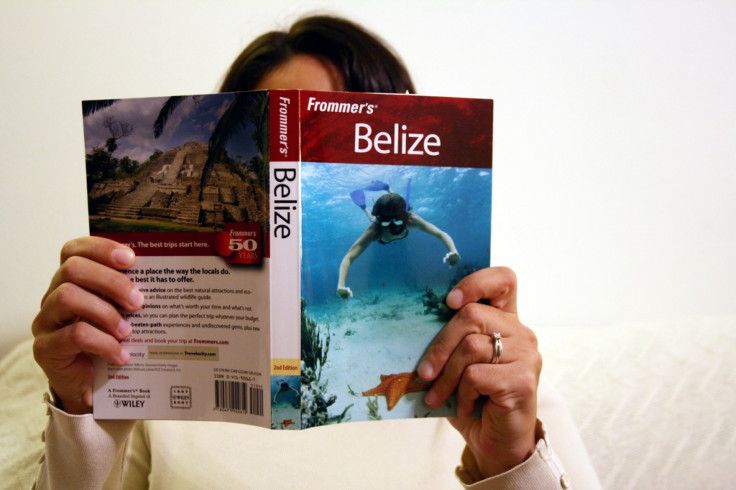Arthur Frommer To Google: Think You Can Kill My Guidebook? Think Again!

Arthur Frommer announced late Wednesday that he had pulled his empire out of the Google trash can, purchasing back the rights to publish his guidebooks and maintain the website that bears his name.
The octogenarian told the AP that, effective immediately, he intended to resume publishing Frommer’s guidebooks.
“It’s a very happy time for me,” he said. “We will be publishing the Frommer travel guides in e-book and print formats and will also be operating the travel site Frommers.com.”
A Google spokesperson confirmed the deal in an email to International Business Times, but did not comment on the terms.
“We can confirm that we have returned the Frommer's brand to its founder and are licensing certain travel content to him," the spokesperson said.
"We’re focused on providing high-quality local information to help people quickly discover and share great places, like a nearby restaurant or the perfect vacation destination. That's why we've spent the last several months integrating the travel content we acquired from Wiley into Google+ Local and our other Google services.”
Two weeks ago, Skift reported that Google had ceased production of all printed publications bearing the Frommer’s brand. Authors were reportedly working on 29 titles when editors, now working for Google, announced that the books would not see the light of day.
A Google spokesperson would neither deny nor confirm those reports to IBTimes.
The last two Frommer’s titles -- “Napa and Sonoma” and “Banff and the Rockies,” both under the all-color Day-by-Day series -- went on sale in early February, while the last traditional guidebook, “Frommer’s Florida,” went on sale in late December. Other titles due out in late February can still be found listed on Amazon and other online retailers, though they were never released.
Google is a relative newcomer to the travel and local listings business but it has marched in with full force. After acquiring Zagat in September 2011, the search engine giant purchased Frommer’s for roughly $23 million last August, though the exact figure was never disclosed.
Frommer’s guidebooks grew out of Arthur Frommer’s initial 1957 best-seller, which advised Americans how to visit Europe on $5 a day. Hoboken-based John Wiley & Sons bought the brand in 2001, and by the time of its sale to Google, Frommer’s offered more than 350 guidebooks in print.
Frommer said he was “delighted” about the new energy and resources at Google that would “allow the Frommer’s brand to reach new levels of popularity.”
But there were signs from the beginning that Google had little interest in maintaining the print publications, or the Frommer’s website. Google removed the bookstore from Frommers.com last September, and by December, all Frommers.com writers left with the exception of Frommer himself.
The site has hardly been touched since, and nearly all of Frommer’s content has been integrated into Google+, though it is not attributed to the brand. As such, Frommer will have to begin anew when Frommer’s gets a second life later this year.
Most guidebook publishers simply update older books with fresh material and issue them as new editions. But all Frommer has now is his name after Google swallowed his content into its massive data bank. Each new Frommer’s book will, thus, require a fresh round of reporting.
Travel guidebooks were once thought of as impervious to the change from print to digital given that holiday makers don’t always have access to mobile data when abroad -- particularly in less developed nations. But publishers of these iconic tomes are beginning to feel the pinch. U.S. retailers sold just 7.97 million books in the adult nonfiction/travel category last year, a drop of 19 percent from 2011 and 27 percent from 2010, according to Nielsen Bookscan.
“Use of printed travel guides have been on the decline for some time,” explains Douglas Quinby, Principal Analyst at PhoCusWright Inc. “There is still a market -- fewer than one in five travelers use them today during the shopping phase, and even less in destination selection -- but it's only getting smaller.”
Some of the losses are, presumably, mitigated by an increase in publishers’ digital downloads. But the wealth of alternative content on the Web -- from TripAdvisor to Wikivoyage and amateur blogs -- is certainly troubling for the industry, Quinby said.
“Online sources of information have been replacing traditional print media sources, and now increasingly mobile solutions are stepping in,” he explained. “Many app providers are smart, too, around roaming charges. For example, TripAdvisor offers destination guides where you can download guides by city in advance and store them locally so you don't need online access when traveling.”
Given the rising tide against print guidebooks, Frommer may find it tough to build back his brand from scratch. But both he and his daughter Pauline Frommer are some of the biggest figures in the industry and are often quoted on consumer travel and related issues. If their readers are still loyal, perhaps the new Frommer’s will find its market.
The turmoil with Frommer’s comes just weeks after BBC Worldwide sold off Lonely Planet to the relatively unknown Nashville-based NC2 Media, a company that has promised to “marry the world’s greatest travel information and guidebook company with the limitless potential of 21st-century digital technology.”
Controlled by the reclusive billionaire Brad Kelley, who made his fortune in the 1990s selling discount cigarette brands, NC2 Media has promised to keep Lonely Planet’s core book publishing, but said its focus will be to “accelerate the brand’s digital strategy.”
© Copyright IBTimes 2024. All rights reserved.






















